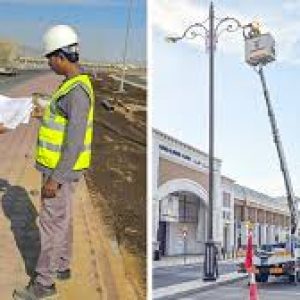As the holy month of Ramzan approaches, the United Arab Emirates (UAE) government has officially announced the revised work hours for public sector employees. In line with the nation’s commitment to supporting the spiritual and physical well-being of its workforce, the adjusted schedule aims to provide employees with a balanced routine that accommodates both professional and religious obligations during this sacred time.
Revised Work Schedule for Public Sector Employees
The UAE’s Federal Authority for Government Human Resources (FAHR) has confirmed that public sector employees will observe reduced working hours during Ramzan 2025. Employees will work from 9:00 AM to 2:30 PM from Monday to Thursday and from 9:00 AM to 12:00 PM on Fridays. This adjustment ensures that employees have ample time to focus on their religious practices, including fasting, prayers, and community engagements.
The five-hour workday aligns with previous years’ policies and continues the UAE government’s tradition of accommodating the needs of fasting employees while maintaining productivity in public services. The decision reflects the government’s progressive approach to work-life balance, particularly during religious observances.
Flexibility and Remote Work Arrangements
To further support employees, the UAE government has also introduced flexible work arrangements and remote work options. In keeping with evolving work trends and digital transformation initiatives, government entities are permitted to allow certain employees to work remotely on designated days, ensuring operational efficiency while prioritizing employee well-being.
The remote work policy particularly benefits employees with long commutes and those who may face difficulties commuting while fasting. Government departments have been encouraged to implement these flexible arrangements while ensuring essential public services remain uninterrupted.


Ramzan Work Hours for Private Sector Employees
While the announcement primarily affects the public sector, private sector employees can also expect reduced work hours. The UAE’s Ministry of Human Resources and Emiratisation (MoHRE) typically mandates a two-hour reduction in the daily work schedule for private sector employees during Ramzan. However, private companies have the discretion to establish flexible work models as long as they comply with the labor laws of the UAE.
The Spirit of Ramzan in the Workplace
Ramzan is a deeply spiritual month for Muslims worldwide, marked by fasting from dawn to dusk, increased prayers, and acts of charity. The UAE government has consistently emphasized the importance of fostering a supportive work environment that enables employees to observe their religious obligations while maintaining workplace efficiency.
In addition to adjusting work hours, several government entities and businesses organize workplace initiatives to promote the spirit of Ramzan, including:
- Community Iftar Gatherings: Many offices arrange iftar meals to encourage social bonding and inclusivity among employees.
- Charity Initiatives: Organizations often engage in charitable activities such as food drives, donations, and volunteering programs.
- Mindfulness and Wellness Support: Some workplaces introduce wellness programs to support employees in maintaining their physical and mental well-being during fasting hours.
Impact of Shortened Work Hours on Productivity
While shorter workdays mean reduced office hours, they do not necessarily equate to decreased productivity. Over the years, studies and workplace analyses have shown that employees working fewer hours during Ramzan often demonstrate improved focus, efficiency, and time management skills. Employers in the UAE have adapted by encouraging task-based work models, prioritizing essential tasks, and ensuring digital tools facilitate seamless communication and workflow management.
Many organizations implement goal-oriented performance measures to ensure that work targets are met despite the adjusted schedules. Employees are encouraged to complete priority tasks earlier in the day when energy levels are higher, making effective use of the working hours provided.
Government’s Commitment to Work-Life Balance
The UAE government has long been at the forefront of introducing policies that prioritize work-life balance and employee well-being. From remote work strategies to flexible working hours, the government continues to pave the way for a modern, inclusive work environment that respects cultural and religious values. The announcement of reduced working hours during Ramzan aligns with the country’s vision to foster an equitable and accommodating workforce.
Guidelines for Employees During Ramzan
To ensure a smooth transition into the adjusted work schedule, government employees are advised to:
- Plan Ahead: Employees should manage their workload efficiently, prioritizing key tasks during peak productivity hours.
- Stay Hydrated and Rested: With fasting lasting for long hours, it is essential to maintain hydration levels before suhoor (pre-dawn meal) and after iftar (evening meal) to sustain energy throughout the workday.
- Respect Office Etiquette: While fasting is a personal commitment, employees are encouraged to maintain patience, professionalism, and mutual respect in shared workspaces.
- Utilize Remote Work Where Available: Employees who are eligible for remote work should take advantage of this provision to maintain a balance between professional responsibilities and personal well-being.
Public Sector Services During Ramzan
Despite the reduction in work hours, essential government services will continue to operate efficiently. Various departments have implemented streamlined processes to accommodate the shortened schedule while ensuring that public services remain accessible. Digital transformation initiatives play a crucial role in this aspect, allowing many government services to be accessed online, reducing the need for physical visits to government offices.
Government service centers may also introduce extended service hours before and after the fasting period to accommodate public needs. Residents and citizens are advised to check the specific operational timings of government entities they need to visit during Ramzan.
Looking Ahead: Eid Holidays and Post-Ramzan Work Resumption
Following the conclusion of Ramzan, the UAE government is expected to announce official holidays for Eid Al-Fitr, marking the end of the holy month. Public sector employees will likely receive a long weekend or extended break, allowing them to celebrate with family and loved ones.
Upon resumption of regular working hours, employees are encouraged to transition smoothly back into their standard work routines while maintaining the discipline and mindfulness cultivated during Ramzan.
Conclusion
The announcement of adjusted work hours for public sector employees in the UAE underscores the government’s commitment to supporting its workforce during the holy month of Ramzan. By implementing a balanced approach that combines flexibility with productivity, the UAE continues to set a global example of workplace inclusivity and religious accommodation.
As the nation gears up for Ramzan 2025, the focus remains on fostering a harmonious work environment that respects cultural values while ensuring operational efficiency. With digital advancements, flexible policies, and community-driven initiatives, both public and private sector employees can look forward to a spiritually fulfilling and professionally manageable month ahead.
Do follow Uae stories for more Updates
Dubai Police Bust Illegal Massage Card Network, Shut Presses










